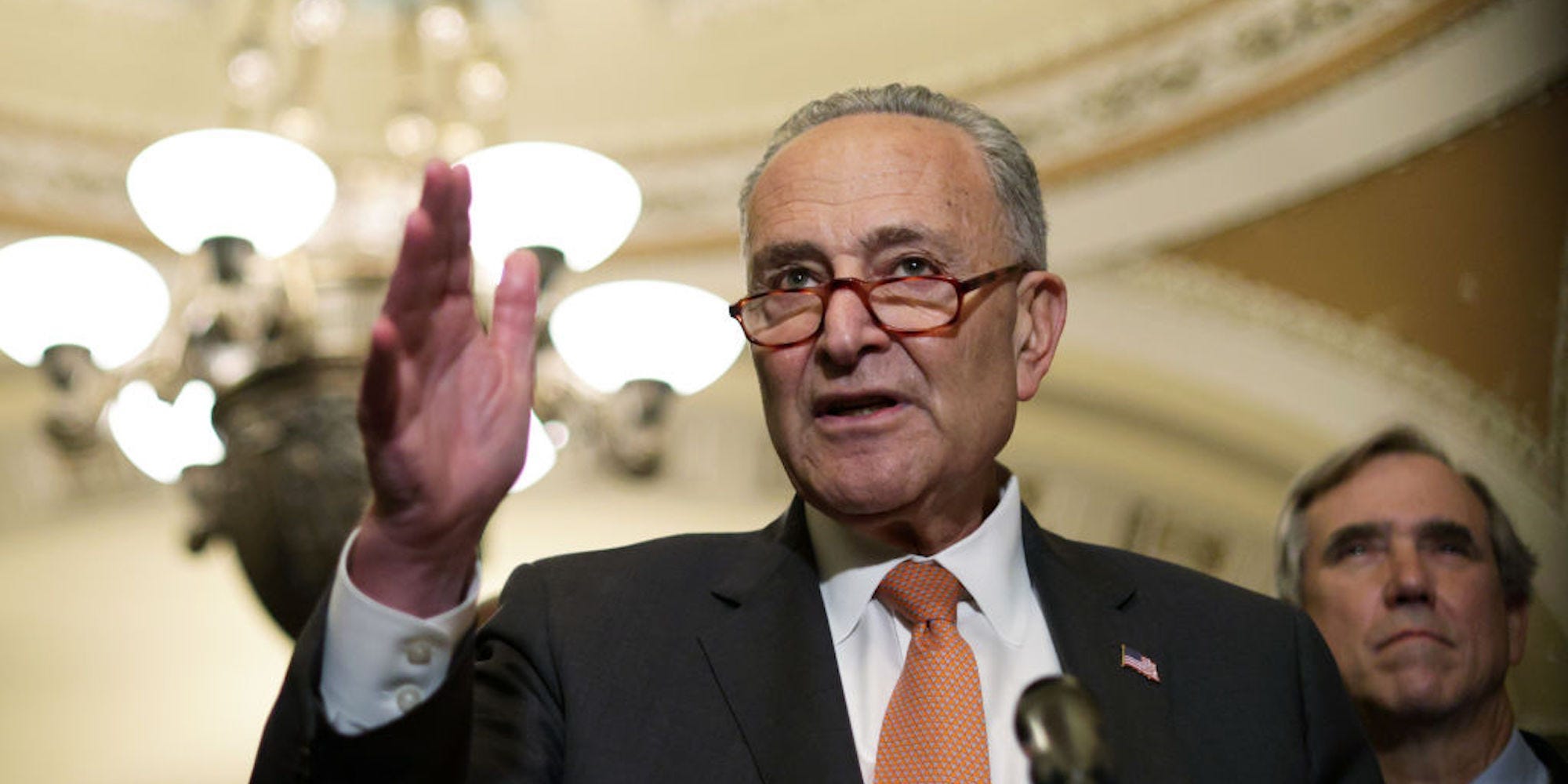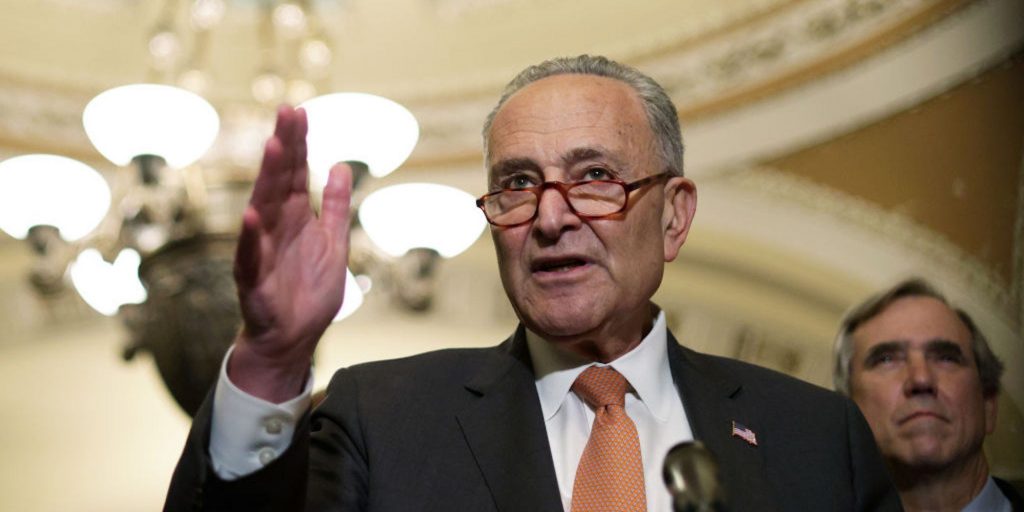
Alex Wong/Getty Images
- Top Democrats unveiled a measure to give most children a savings account seeded with up to $9,000 in federal cash.
- It would be directed at households earning less than $100,000 annually.
- After turning 26, account beneficiaries could use the money toward buying a home or starting a business.
- See more stories on Insider's business page.
A trio of Senate Democrats unveiled a plan on Monday to provide up to $9,000 to most American children through a savings account in just the latest Democratic effort to give cash to lower-income families.
The measure – known as the Young American Savers Act – would provide federal assistance to children with parents or legal guardians that earn less than $100,000. Senate Majority Leader Chuck Schumer, Sen. Ron Wyden of Oregon, and Sen. Bob Casey of Oregon rolled out the plan.
"The Young American Savers Act would invest in our nation's youth and make it easier for future generations of children to escape poverty and obtain economic security," Schumer said in a press release. "No one should be denied the opportunity to own a home or start a business because they don't come from a wealthy family."
The federal government would provide $500 annually until the child turned 18. Then, up to half of the funds could be used to pay for college. Other approved uses of the government cash include buying a home, starting a business, or putting it into a retirement account after the account beneficiary turns 26.
Casey's office estimated at least 48.3 million kids live in households earning below $100,000. The plan did not contain a price tag.
The government currently offers college savings accounts, or 529 plans, so named because of a corresponding IRS code, are generally set up by wealthier American families and have strict withdrawal limits. A handful of states - including Pennsylvania, Nebraska, and Illinois - have started enrolling children into accounts for higher education purposes, The New York Times reported.
Earlier this year, Democrats approved bulking up the child tax credit, eliminating any tax obligation for families to access it and turning it into a monthly payment. That's poised to start on July 15.

